
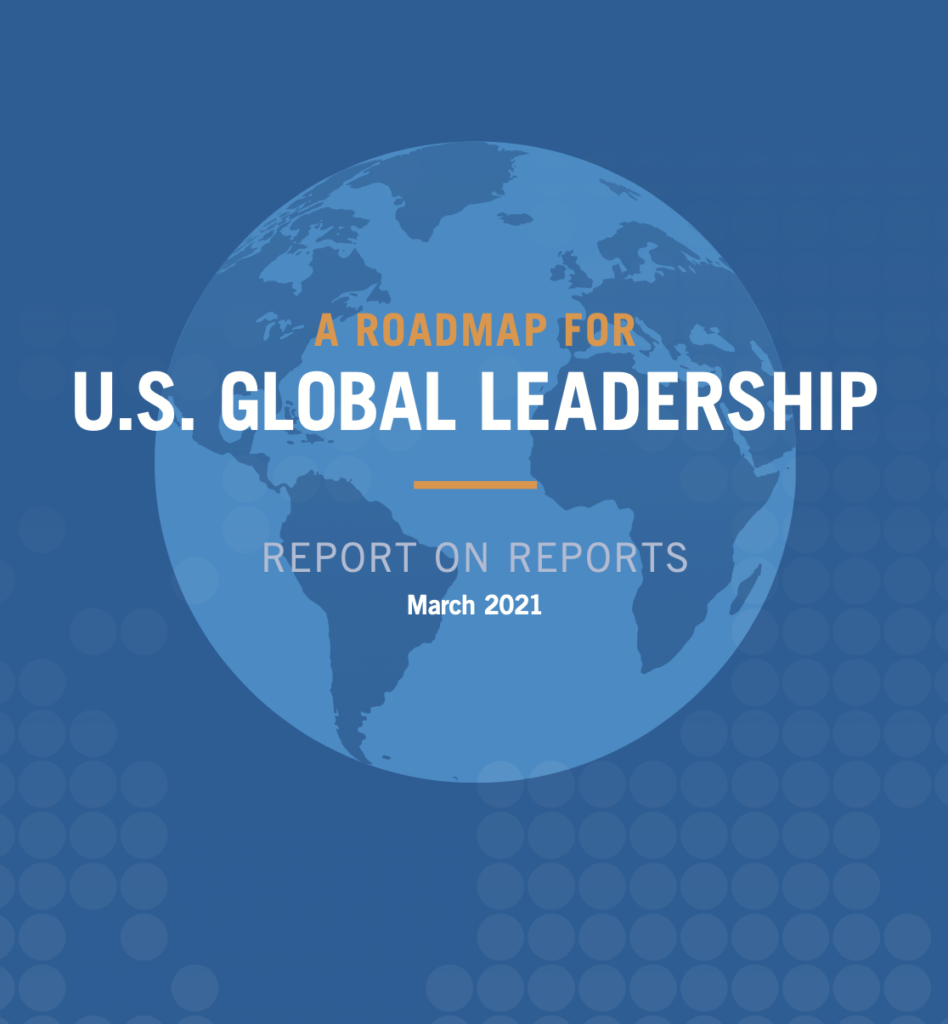
Check out the highlights from our our exclusive discussion with Jake Sullivan, National Security Advisor to President Biden, and panel with Governor Mary Fallin, Congressman Peter Roskam, and Columbia, SC Mayor Steve Benjamin.
The COVID-19 pandemic has reminded Americans that the world is interconnected and what happens overseas can land on kitchen tables at home in a matter of hours. Upending an already turbulent political and global landscape, American’s health and economic security have been impacted like never before while the deadly virus has killed nearly 2.5 million people and pushed record numbers of people into poverty and famine around the world.
The Biden Administration and 117th Congress took office with a host of global challenges in their foreign policy “inbox,” many of which have been exacerbated by the COVID-19 global pandemic with consequences for Americans’ health, economic, and national security. Even with the development of promising vaccines, Executive Director of the United Nations World Food Programme David Beasley warned that “our hardest work is yet to come.”
As it has done every four years dating back to the 2008 presidential election, the U.S. Global Leadership Coalition (USGLC) reviewed more than 100 reports from leading think tanks and policy institutes across the political spectrum with recommendations for the Administration and Congress on foreign policy and national security. USGLC’s “Report on Reports” synthesizes these reports, looking for areas of consensus in the hopes American policymakers can find common ground.
This year’s report – USGLC’s largest analysis of policy recommendations – found a wide range of views on America’s role in the world. And we found common ground – a clear consensus for using diplomacy and development to tackle six global challenges that are critical to America’s health, security and economic interests.
• Fighting the global COVID-19 pandemic
• Addressing growing global economic competition
• Mitigating the impacts of climate change
• Defending against rising authoritarianism
• Responding to global humanitarian crises
• Influencing global alliances and partnerships
Read on to learn about areas of consensus for strengthening development and diplomacy to tackle each of these challenges and check out the full report for specific policy recommendations we reviewed in our analysis.
In a town where it often feels like policymakers can’t agree on anything, we have found a lot of agreement when it comes to U.S. global leadership in USGLC’s new Report on Reports. This year, we looked at more than 100 policy reports from across the political spectrum, and in the midst of a global pandemic where no one is safe until everyone is safe, there is a clear roadmap of a foreign policy that delivers for American families. Members of Congress from both sides of the aisle and the Biden Administration can use this report to find common ground as they tackle six big global challenges that truly matter to our health and economic recovery – and it starts with strengthening diplomacy and development programs.
–LIZ SCHRAYER, PRESIDENT & CEO, USGLC
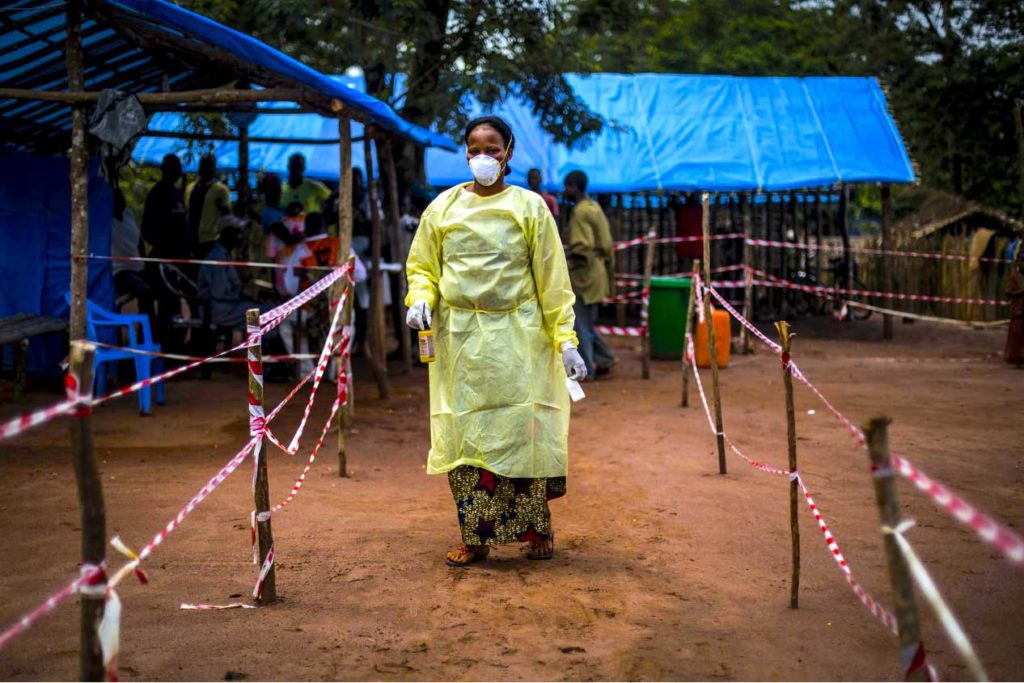
Even with the development of promising vaccines, new variants of COVID-19 are continuing to spread, and Americans will not be safe, and our economy will not fully recover, until the virus is under control around the world. United Nations Secretary General Antonio Guterres observed in late February 2021 that 10 countries had administered 75% of all vaccines while 130 countries had not administered a single dose. According to the International Chamber of Commerce, failing to ensure an equitable global distribution of a vaccine could cost the global economy $9 trillion as secondary effects to routine health treatments and immunizations will devastate vulnerable populations.
Reports from think tanks including the Atlantic Council, Bipartisan Policy Center, Brookings, Center for American Progress (CAP), Center for Strategic and International Studies (CSIS), Council on Foreign Relations (CFR), Global Health Council, Heritage, Rand, and Wilson Center reflected different approaches to the challenge. Some reports focused on investigating China’s role in the COVID-19 outbreak, while others called for reforming America’s global health programs by moving PEPFAR into USAID with other global health programs. Yet our analysis also found widespread consensus in reports from across the political spectrum on the need to ensure stronger pandemic preparedness, review multilateral efforts to fight the pandemic—including reforming institutions like the WHO—and improve coordination across the U.S. global health policymaking process. There was also broad consensus in many reports on the need to strengthen local health systems in the developing world and ensure equitable distribution of a vaccine.
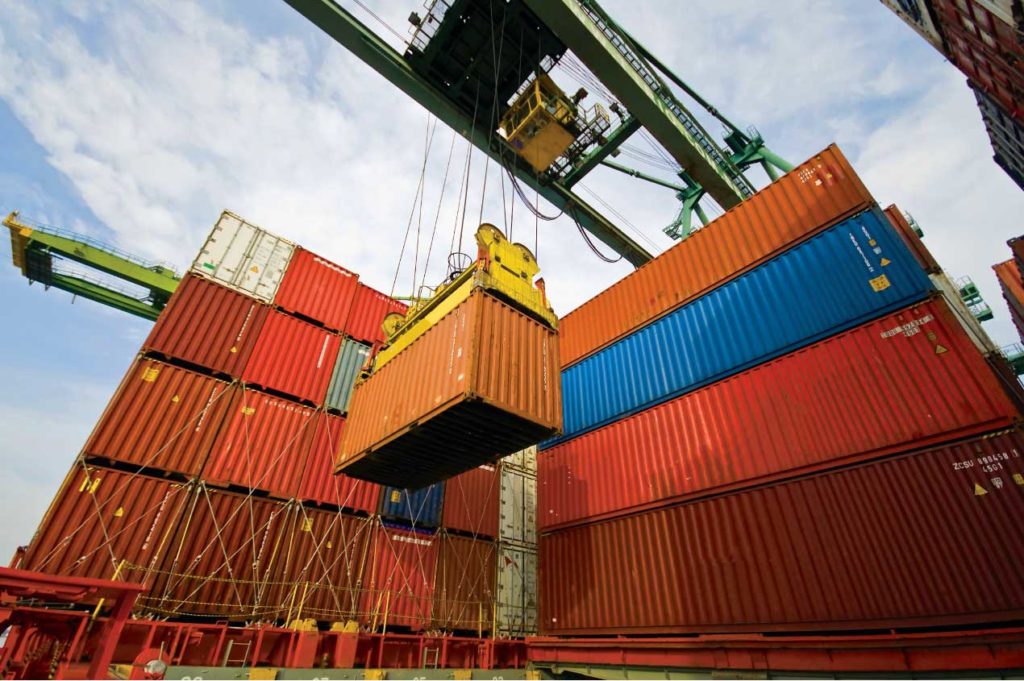
Even prior to the economic downturn from the COVID-19 pandemic, there was widespread agreement on the challenge of growing global economic competition from countries like China, which launched its global Belt Road Initiative (BRI) in 2013 and new trade agreements with the European Union and with 15 countries in the Asia Pacific in 2020. Past Democratic and Republican Administrations have called for strengthening America’s economic statecraft to advance U.S. economic interests around the world, catalyzing investments in overseas markets that support jobs at home and partnering with businesses to tackle global challenges at scale. With 95% of the world’s consumers living outside the United States, international markets are critical opportunities for America’s businesses and workers.
Reports from think tanks including the Atlantic Council, Brookings, CAP, CSIS, Heritage, and Stimson reflected different approaches to the challenge of global economic competition. Some reports focused on encouraging allies to challenge China at the World Trade Organization (WTO), while others called for creating a new Entrepreneurial and Commercial Service Corps. Yet our analysis also found widespread consensus in reports from across the political spectrum on maximizing the impact of the Development Finance Corporation (DFC), bolstering diplomatic capacity to promote U.S. trade and investment, renewing international efforts to counter China’s global economic influence, and doubling down on Africa as a key economic opportunity.
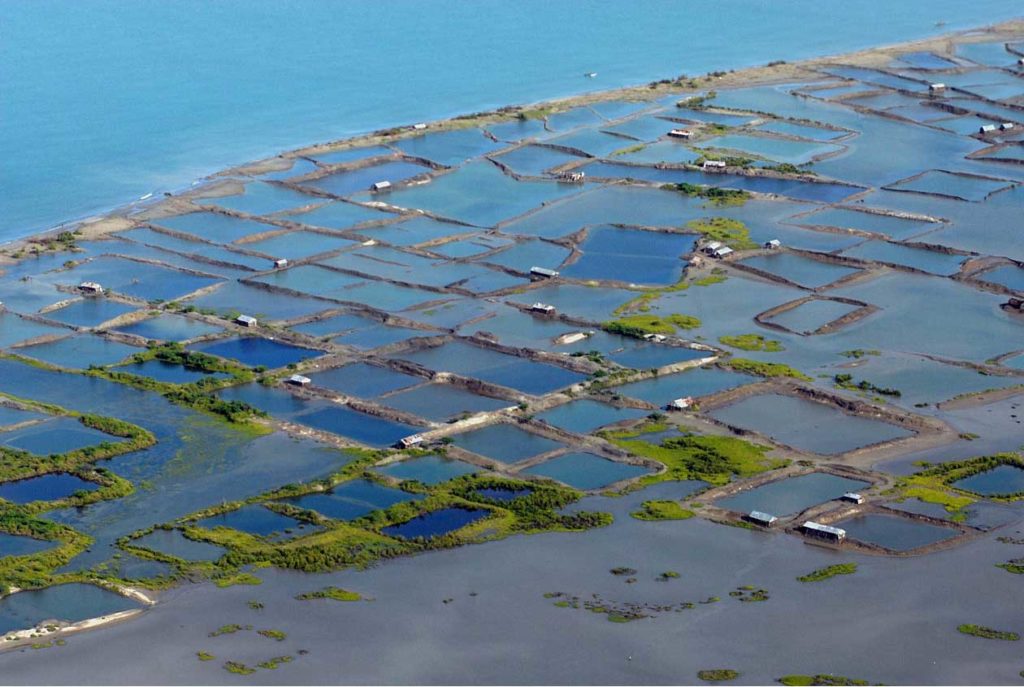
2020 tied as the hottest year ever recorded, with record-breaking extreme weather and climate-driven disasters from fires to floods to hurricanes. While greenhouse gas emissions declined slightly in 2020 because of travel and economic restrictions due to COVID-19, overall levels of carbon dioxide in the atmosphere are likely to increase compared to 2019. Climate shocks are also exacerbating challenges from food insecurity to refugee crises and conflict, especially in the developing world. More than 143 million people could be driven from their homes by climate-driven conflict and disasters by 2050, according to the World Bank.
Reports by think tanks including the Atlantic Council, Brookings, CAP, Center for a New American Security (CNAS), CFR, CSIS, Heritage Foundation, and Wilson Center reflected different approaches to the challenge of climate change, including widely recognized differences over proposals to cut U.S. greenhouse gas emissions and rejoin the Paris Climate Agreement. Yet our analysis also found widespread consensus in reports from across the political spectrum for investing in building resilience in the developing world hit hardest by its effects and focusing on climate-driven conflict, migration, and food insecurity—building on long-standing across Democratic and Republican Administrations. There was also broad consensus in many reports on the need to engage with China on climate change.
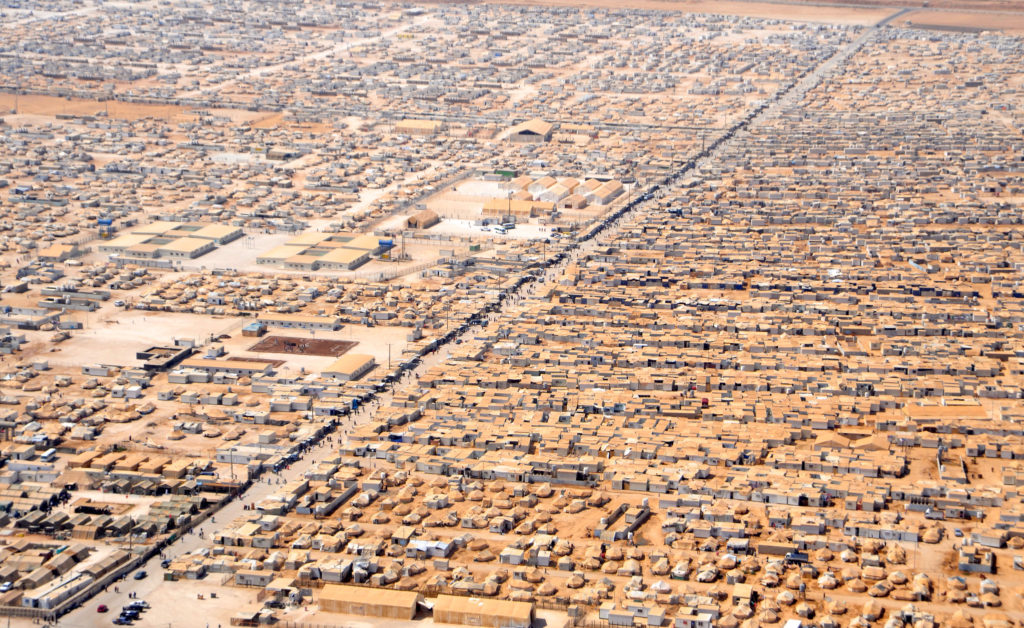
The world is facing dramatic and growing humanitarian crises, driven by protracted political conflicts, armed conflict, extreme weather caused by climate change and the COVID-19 pandemic – from longstanding crises in Yemen, Syria, Venezuela, and South Sudan, to burgeoning crises in the Central Sahel and Ethiopia. According to the United Nations High Commissioner for Refugees (UNHCR), more than 80 million people have been forcibly displaced from their homes worldwide – a number that has doubled over the past decade and is especially concerning during a pandemic given the crowded living conditions of refugees. The United Nations predicts a record 235 million people will need humanitarian assistance in 2021 — a 40% increase over 2020, almost entirely attributable to the impact of COVID-19.
Reports from think tanks focusing on global humanitarian crises included AEI, Brookings, CAP, Center for Global Development (CGD), CFR, CSIS and Heritage Foundation and bipartisan taskforces by CSIS, co-chaired by Senators Cory Booker (D-NJ) and Todd Young (R-IN) and by U.S. Institute of Peace (USIP), co-chaired by former-Governor Tom Kean and former-Representative Lee Hamilton. These reports reflected different approaches to the challenge – with some focused on strengthening security sector assistance in fragile states, while others called for elevating competition with China, Russia, and Iran in a global fragility strategy. Yet our analysis also found widespread consensus in reports from across the political spectrum on several issues, including addressing the root causes of conflict and instability, fostering greater local stakeholder engagement, strengthening interagency coordination on crisis response, and investing in better data on humanitarian and conflict prevention efforts.
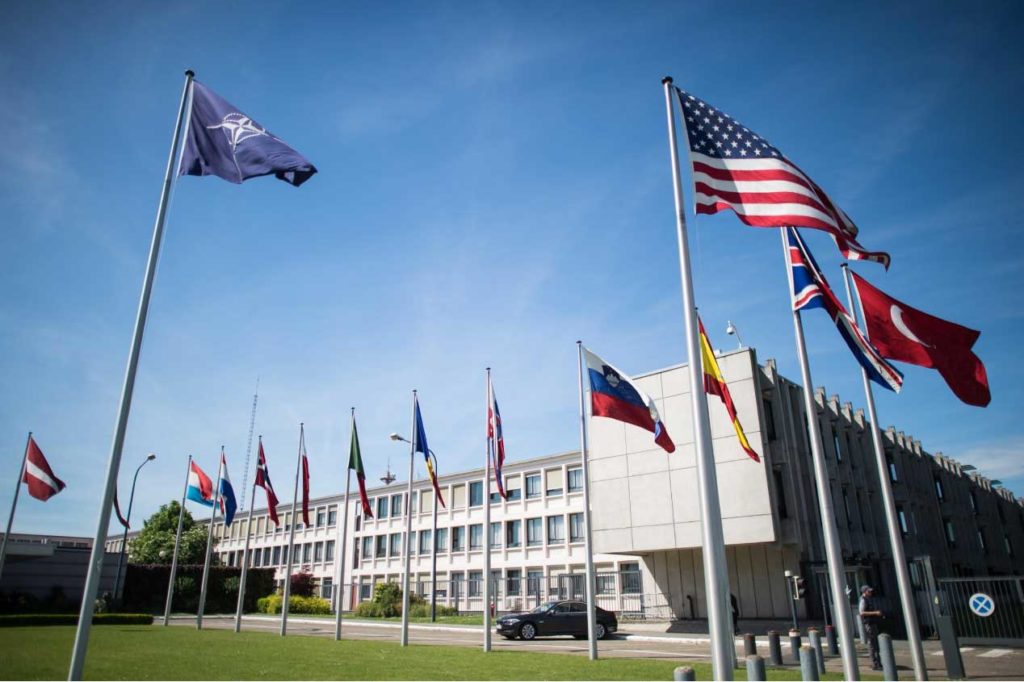
The challenge of using American diplomacy to influence alliances and partnerships around shared interests and values has been at the center of the debate over America’s role in the world in recent years. The COVID-19 pandemic has also witnessed the rise of “vaccine diplomacy” by competing powers seeking to extend their influence by producing and offering a vaccine to countries in need around the world. The State Department—America’s lead agency for diplomacy—has suffered from repeated proposed dramatic budget cuts in recent years, as well as a hiring freeze that left the department under-staffed, and an unusually high number of senior positions and ambassadorships filled by political appointees rather than Foreign Service Officers.
Reports from think tanks and policy institutes including the Atlantic Council, AEI, Brookings, Carnegie, CATO, CFR, CNAS, CSIS, CAP, Heritage, Human Rights First, Quincy Institute, and Stimson reflected different approaches to the challenge of influencing global alliances and partnerships. Some reports called for using diplomacy to end “endless wars,” while others called for re-writing the Foreign Assistance Act and Foreign Affairs Act that organize U.S. foreign assistance and the Foreign Service. Yet our analysis found widespread consensus in reports across the political spectrum on the need to renew alliances and partnerships, lead with diplomacy in global crises, and bolster diplomatic capacity and modernize the Foreign Service.